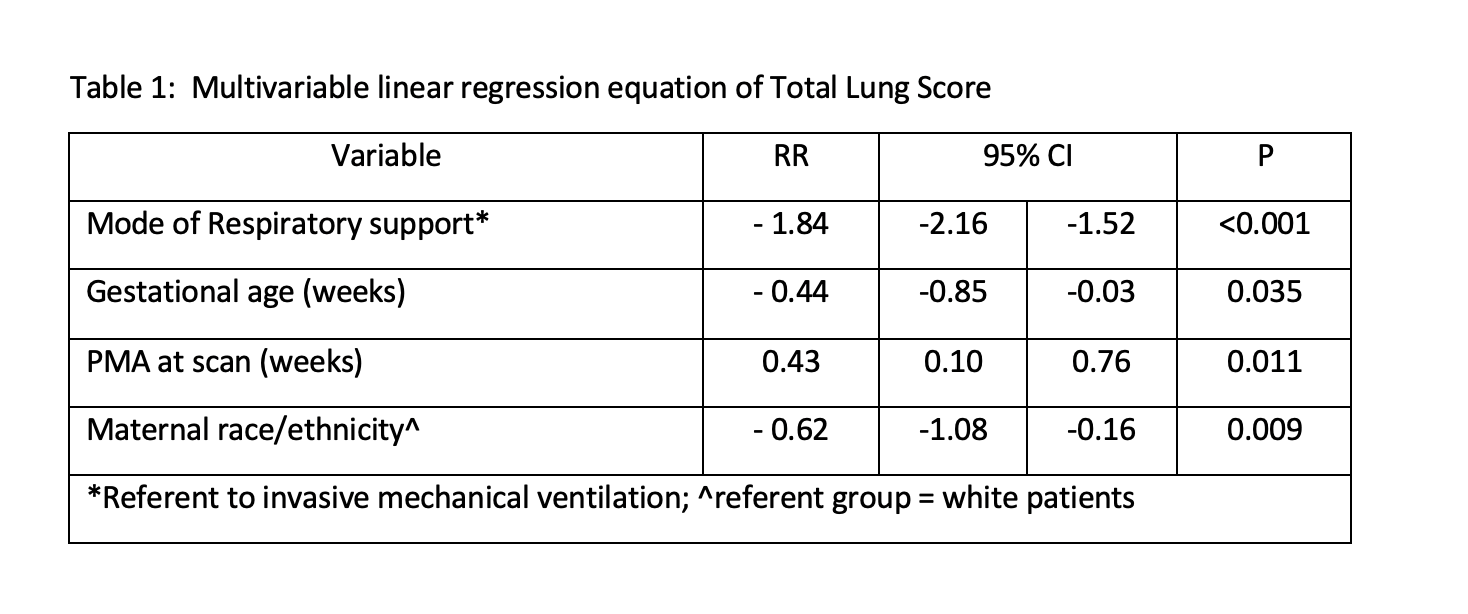Neonatal Pulmonology
Neonatal Pulmonology 5: NICU Practices
154 - Trajectory of Lung Ultrasound Scoring in Preterm Infants
Publication Number: 154.437

Rachel Weinstein, MD (she/her/hers)
Fellow Physician
Northwestern University The Feinberg School of Medicine
Northbrook, Illinois, United States
Presenting Author(s)
Background:
Neonatal lung ultrasound is an emerging clinical and investigative tool for the daily respiratory care of neonates. Lung ultrasound poses several advantages: real-time assessments and high inter-observer agreements without ionizing radiation. As an accepted surrogate marker of lung pathology, lung ultrasound scoring (LUSsc) correlates with the need for surfactant replacement in neonates with respiratory distress syndrome and prediction of bronchopulmonary dysplasia. However, the trajectory of LUSsc in the context of varied respiratory supports in these preterm infants remains uncertain.
Objective:
To describe the longitudinal changes in LUSsc prospectively in preterm infants < 32 weeks’ gestation.
Design/Methods:
We identified preterm infants < 32 weeks gestation at our center beginning in September of 2022. After parental consent, LUSsc were obtained weekly by a trained sonographer, beginning at 2 weeks of life, using the validated system described by De Luca et al (2015). All scores were reviewed by a blinded physician credentialed in point of care ultrasound acquisition and interpretation. Clinical and demographic data were collected, and time-series regression analyses with autocorrelations were used to estimate the unadjusted and independent associations between type of respiratory support, maternal race/ethnicity, and LUSsc.
Results: Ten patients and their 48 lung ultrasounds were analyzed. Infants were born with a median gestation of 30 weeks, birthweight of 1.18 kg, and more frequently were male (70%). Scans were completed during invasive mechanical ventilation (n=10); bubble CPAP (n=13), nasal cannula (n=13), or room-air (n=12). Mean LUSsc was 7.2 [range: 2-17]. Of the 48 scans, LUSsc were inversely and independently related to the type of respiratory support ((RR -1.47; 95% CI: -1.9, -1.1, p< 0.001): higher scores were seen with those receiving invasive mechanical ventilation relative to those receiving room-air / nasal cannula, independent of gestational age at birth (RR -0.60, p=0.005), or post-menstrual age (PMA: RR 0.29, p=0.56)) at the time of scan. Independent changes in lung ultrasound scores were apparently varied by maternal race/ethnicity (Table 1).
Conclusion(s): LUSsc appears dependent on the mode of respiratory support at the time of ascertainment and varied with maternal racial/ethnic status. Further ascertainment will permit correlations between these findings and functional pulmonary outcomes in our cohort.

